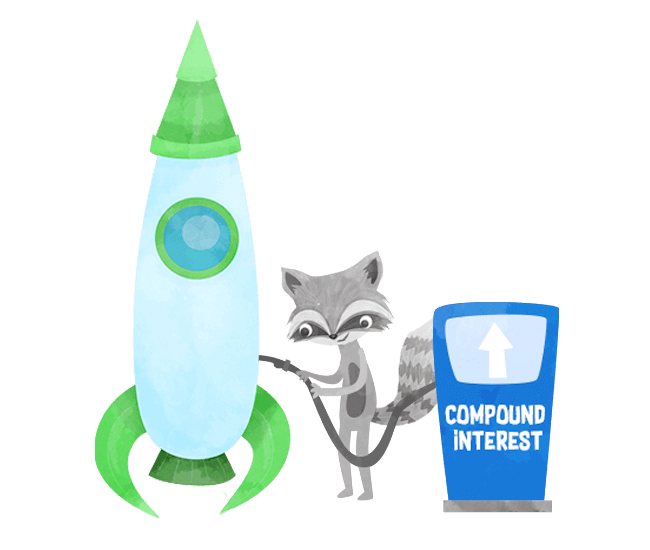
Albert Einstein reportedly once described the principle of compound interest as “the eighth wonder of the world”. He also said it was “the most powerful force in the universe”. So what is compound interest and why is it so wonderful? How will it help you grow your investments? Will it allow you to retire early or become a millionaire?
In simple terms, compound interest allows you to earn interest on your interest over time, assuming you don’t withdraw your money. This results in your money growing at an ever-accelerating rate, allowing your money to work for you.
For example, imagine that you put $200 into a retirement investment account. That money earns interest at a rate of 10% per year, and at the end of Year 1, you have $220. Then if you earn 10% of interest on that, you end up with $242 (10% on your original money plus 10% on the interest you’ve already earned). This continues so on and so forth until you have yourself a hefty sum of money.
Even if this seems super basic, the power of compound interest is key to building your wealth. If you’re patient enough, time will be your best friend. Taking this concept and applying it over the long-term, such as 10, 20 or even 30 years, results will be completely different (and much better).
There are three main factors that will influence that rate at which your money grows. These are:
As mentioned above, compounding happens when interest is paid repeatedly over time. It’s important to note that the first one or two payments (or years) will likely not look impressive, but things will start to pick up after you add interest over and over again. That’s why the frequency of compound matters; more frequent compound periods – weekly, for example – will have more dramatic results.
Deposits and withdrawals will affect your account balance. Letting your money grow while continually depositing into your account works best. If you withdraw your earnings, you will dampen the effect of compounding interest.
The amount of money you deposit will not affect compounding. Whether you start with $100 or $100,000, compounding interest works the same way. The earnings will seem more significant when you start with a larger deposit but it’s best to focus on percentages and time when planning for your future. The dollars earned are simply a result of the timeframe and the rate.
As the adage goes, “the best time to invest was yesterday. The second best time is right now.”
Don’t let yourself or anyone else tell you that you can begin to save later on. Even if it’s only a few dollars out of every paycheque, the costs of delaying your investments are substantial. Compound interest is the easiest way to put your money to work without doing a thing. Remember the example of a $200 investment earning 10% interest? If you were to contribute $100 monthly to that account, your initial investment of $200 at an annualized interest rate of 10% will be worth $230,016.27 after 30 years when compounded monthly. This comes out to a whopping $193,816.27 just in interest.
If that example is still confusing (don’t worry, it happens), consider it this way: When you owe a lot of money in debt, the interest payments pile up. Soon, you owe more in interest payments than you actually owed in debt. With compound interest, you turn that equation around: you eventually profit more in interest than you put in originally.
The numbers prove that if you have the discipline to make regular deposits paired with the patience not to touch your money, you can turn a little into a lot. Compound interest may not be as astounding as Einstein’s Theory of Relativity, but we like to think it’s pretty close.
YOUR FREE FINANCIAL PLAN
Are you ready to invest in your future?
Build your free plan today.
Start now